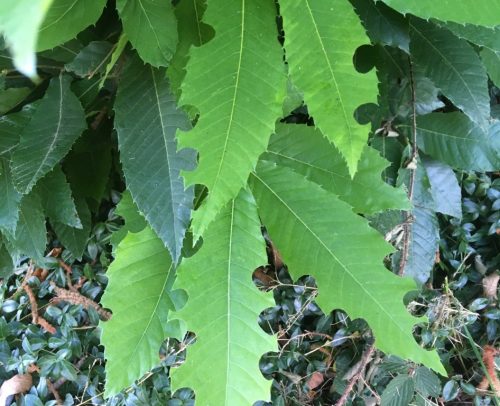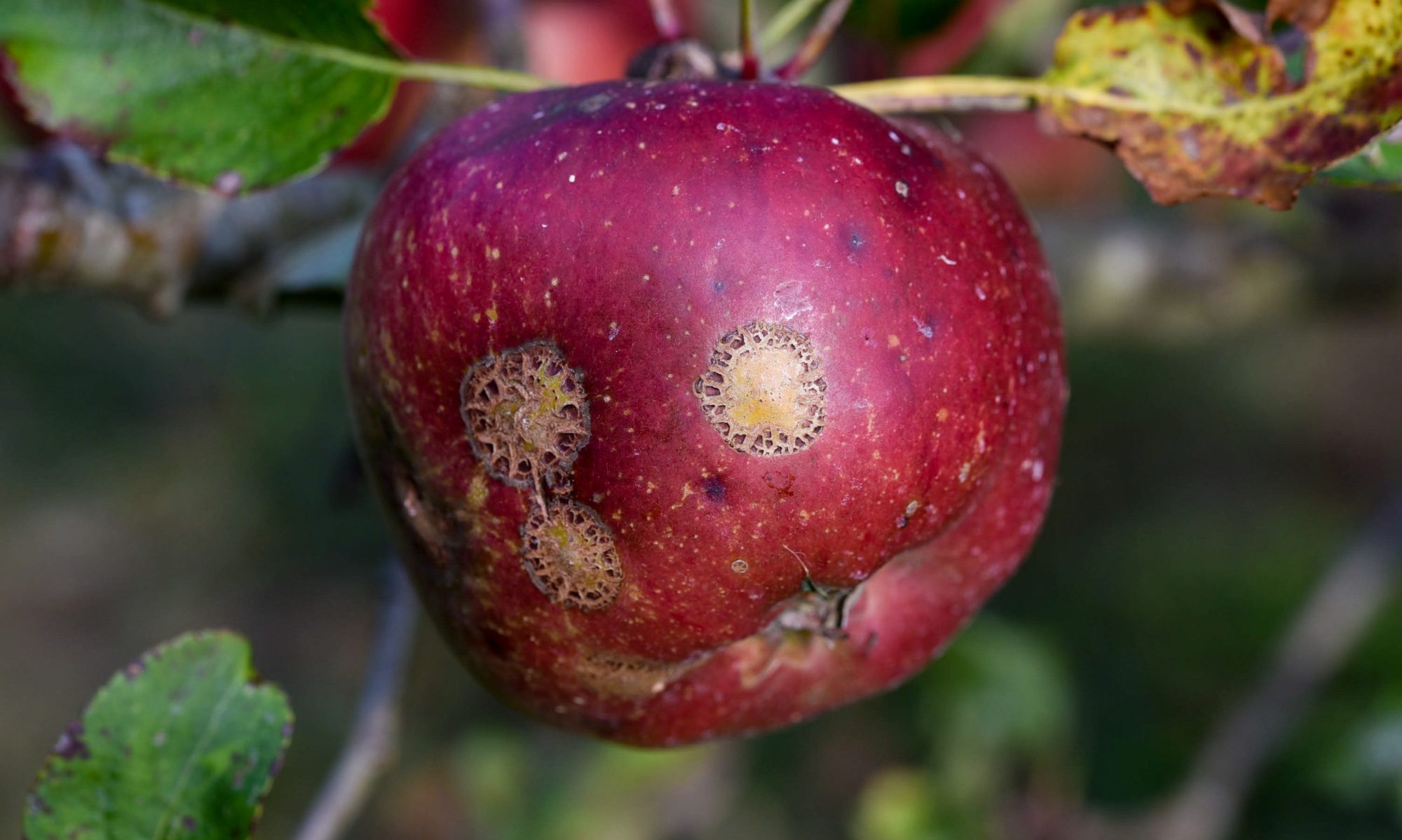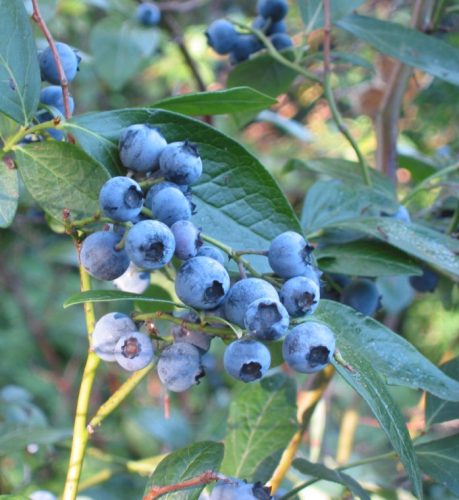Blueberry belongs to the heath family, is native to the northeastern United States.
Do not confuse with:
European blueberry (Vaccinium myrtillus)
You are viewing the mobile-adapted version of the page.
The one for tablets, laptop and desktop also provides general information, such as origin and cultivation.
Blueberry (Vaccinium corymbosum) – the northern highbush blueberry also called blue huckleberry, tall huckleberry and swamp blueberry belongs to the heath family. Blueberry is native to the northeastern United States. Not to be confused with the European blueberry (Vaccinium myrtillus). The blueberry is pruned in early spring – if necessary. Blueberry does not need much pruning; once every three to four years is sufficient. Then cut away excess branches at the heart of the shrub. The blueberry can grow one and a half to two meters tall and can reach thirty years of age.
The blueberry likes semi-shade and a light, humus-rich acidic soil (pH 3.5 – 4.5). Blueberry is not a plant for heavy clay or loam soils. Keep the soil moist, without really needing to be wet.
Bugs

Semicircular bites from leaf margins: Vine weevil (Otiorhynchus sulcatus).
Fungi & diseases
Brown spots, then grey mold: Gray mold (Botrytis ssp.).

Brown-purple spots on branches: Godronia Canker (Godronia cassandrae).
Fruits are affected by a fungus: ripe rot – Anthracnose (Colletotrichum).
Other
Berries are snatched: birds.
Deficiency symptoms, moderate to no growth: soil pH too high.

